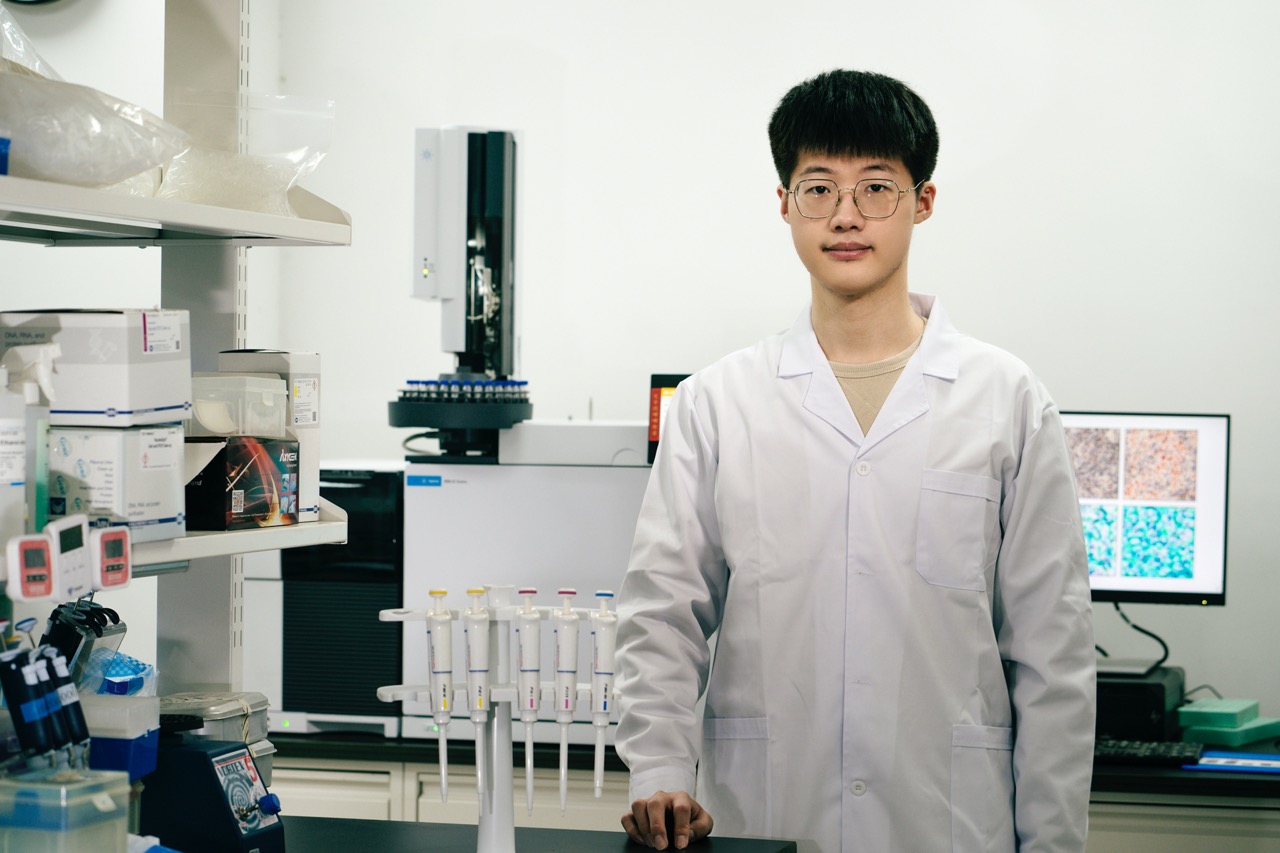Current Members
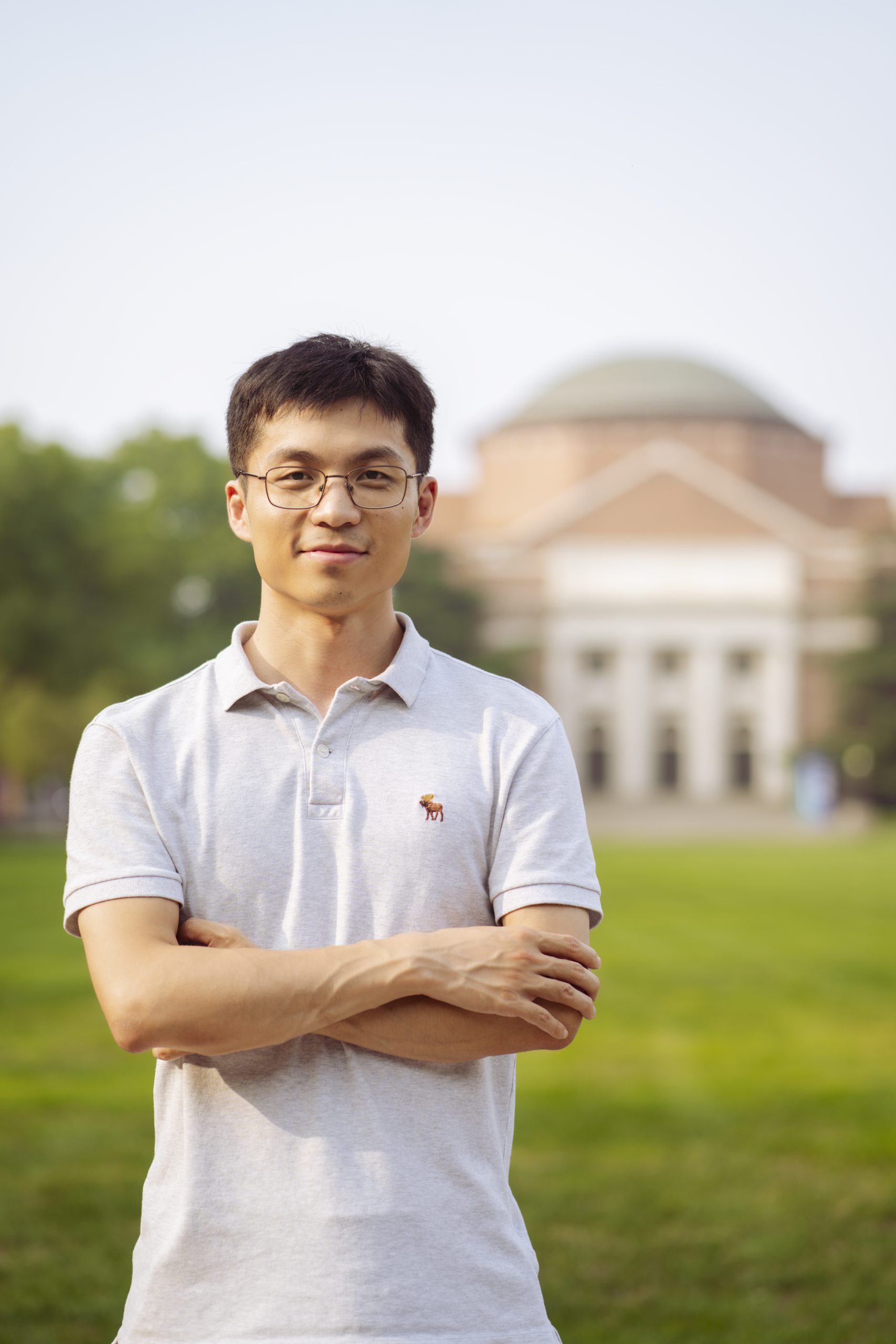
Principle Investigator
Jiajun Zhu, Ph.D.
2021- present, Assistant Professor, Tsinghua University, School of Medicine
2016-2021, Postdoctoral Research Fellow, Memorial Sloan-Kettering Cancer Center
2010-2016, Ph.D., University of Pennsylvia, Perelman School of Medicine
2010-2016, M.A., University of Pennsylvia, The Wharton School
2006-2010, B.S., Tsinghua University, School of Life Sciences, Biological Science
2006-2010, B.A., Tsinghua University, School of Economics and Management
Dr. Zhu has a long-standing research interest in understanding the molecular mechanism and metabolic basis of human pathologies such as cancer, with a goal to improve therapeutic strategies for disease treatment. Dr. Zhu received a China Scholarship Council Excellent Ph.D. Student Award in 2015; a Leukemia and Lymphoma Society Postdoctoral Fellowship in 2017; an NIH(NCI) K99/R00 Pathway to Independence Award in 2020; an NSFC Excellent Young Scientist Fund (Overseas) in 2021; and a “Tsinghua-Bayer Investigator” Award in 2022.
Meet The Team
Staff
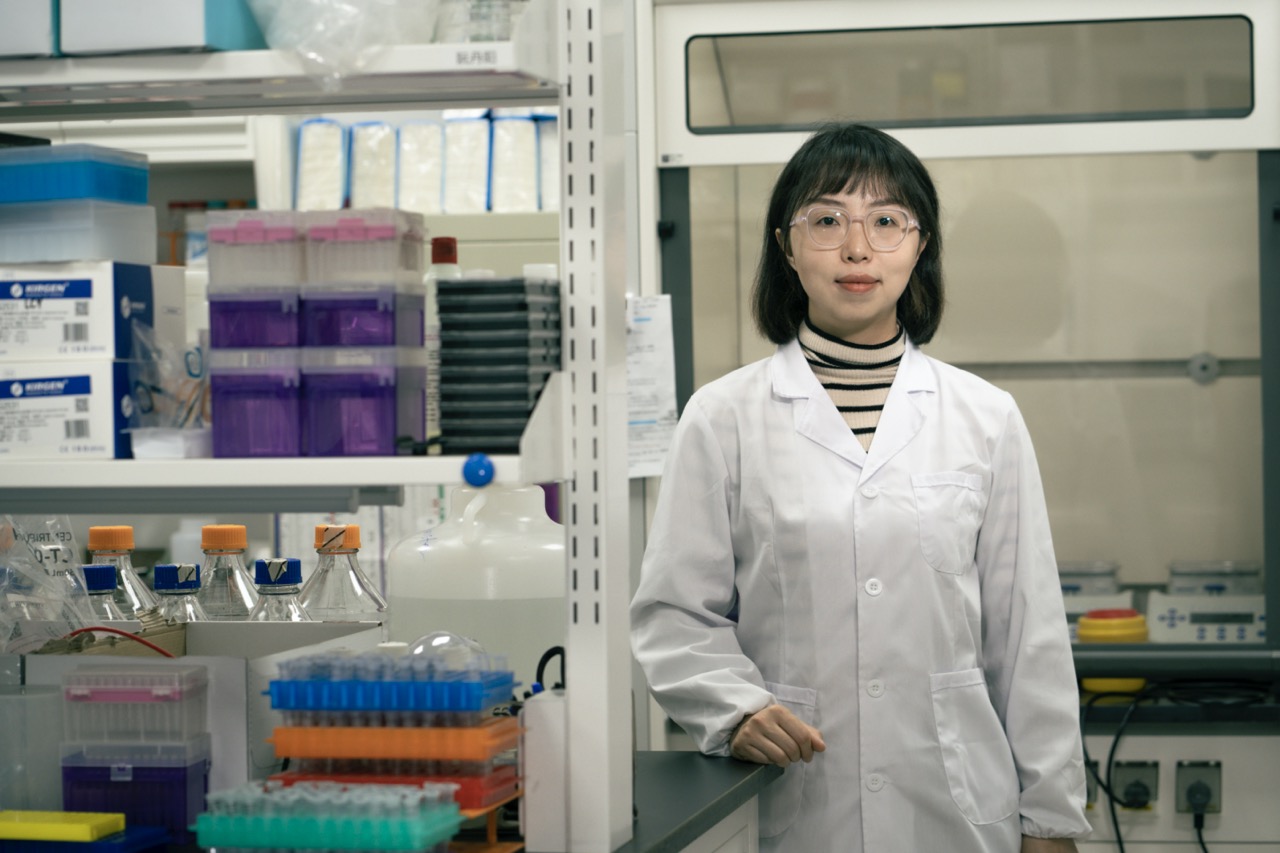
Qiutong Liu
2022.09- present, Lab Manager
Qiutong is responsible for maintaining lab order; managing financial issues; building up the lab website; and keeping up with all other secretary duties in the lab.
Postdoctoral researchers

Weitao Li
Postdoctoral Fellow
2024.07- present, Postdoctoral Research Fellow, Tsinghua University, School of Medicine
2021.09-2024.06 M.D., Peking University, School of Basic Medical Sciences, Department of Immunology
2016.09-2021.06 B.S., Peking University, School of Basic Medical Sciences
Research Interest:
ZAKα is the sole known sensor that detects ribosome pausing or stalling triggered by compromised mRNA translation. Upon activation, ZAKα initiates the ribotoxic stress response (RSR), activating downstream signaling via the p38 and JNK MAPK pathways, which regulate metabolism, inflammation, and cell fate determination. Weitao is interested in investigating the molecular mechanisms governing ZAKα pathway activation and regulation.
Ph.D. Students
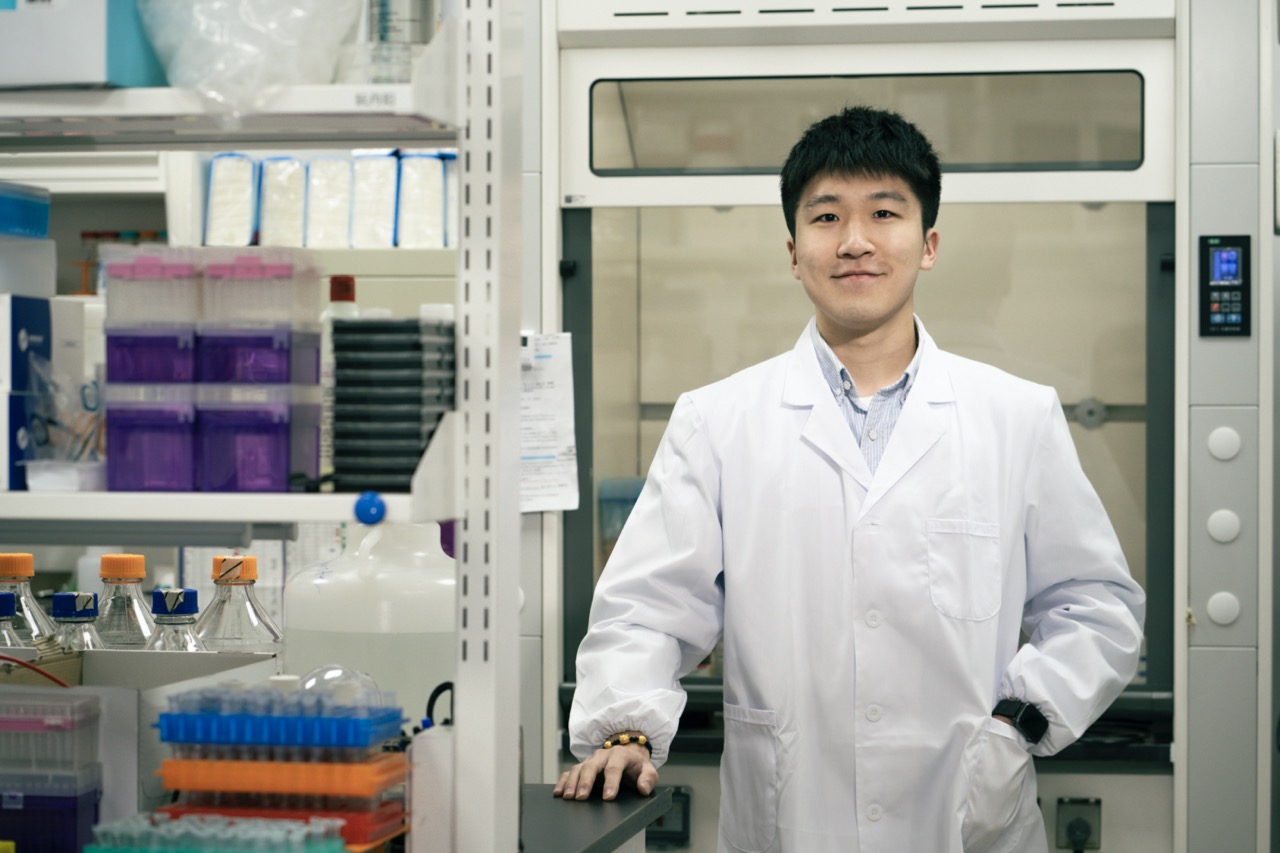
Chengyang Liu
Doctoral Candidate
Chengyang got his B.Sc. at College of Life Sciences, Wuhan University in 2020. During his senior year from 2019 to 2020, he entered Dr. Stephanie Halene Lab at Yale University as visiting student and utilized genetic engineering mouse models to study m6A RNA modification modulator METTL3 and ALKBH5 in normal hematopoiesis. After graduation, he was employed as research assistant at Dr. Meng Michelle Xu Lab at Institute of Immunology Tsinghua University and participated in development of proximity-dependent intercellular enzyme-based labeling system for monitoring tumor and T cell interaction. In Fall 2021, he was admitted as PhD student in CLS program at Tsinghua University and joined in Dr. Jiajun Zhu Lab in Spring 2022.
Research Interest:
Unlike carbohydrates, fats or proteins, micronutrients such as vitamins do not feed ATP production and only account for a small amount of the total cell mass. However, micronutrients are essential coenzymes supporting intracellular catalytic processes and structural elements constituting functional macromolecules. As a result, micronutrients are indispensable in maintaining cell growth and organismal integrity. Chengyang is mainly interested in how vitamins and their metabolism support cellular homeostasis and sustain the survival and proliferation of both normal and cancer cells.
Qingyu Li
Doctoral Candidate
2017- present, MD candidate, Tsinghua University-PUMC, clinical medicine
2017-2020, B.S., Tsinghua University, Biology
Research Interest:
Qingyu studies sulfur-related metabolism in the lab. S-adenosylmethionine (SAM) is a sulfur-containig metabolite that modifies many cellular processes. Therefore, it is of great significance to maintain SAM homeostasis in the cell, which requires a sensing mechanism for intracellular SAM availability. Qingyu aims to uncover a new mechanism for cells to sense and respond to SAM level. Iron-sulfur cluster (ISC) is another critical type of sulfur-containing cofactor in cells. The biosynthesis of ISC needs coordinated and complex function of many proteins, which happens in mitochondria. The process of ISC biosynthesis is still not clearly elucidated. Qingyu uses CRSIPR screening to investigate this complicated process.
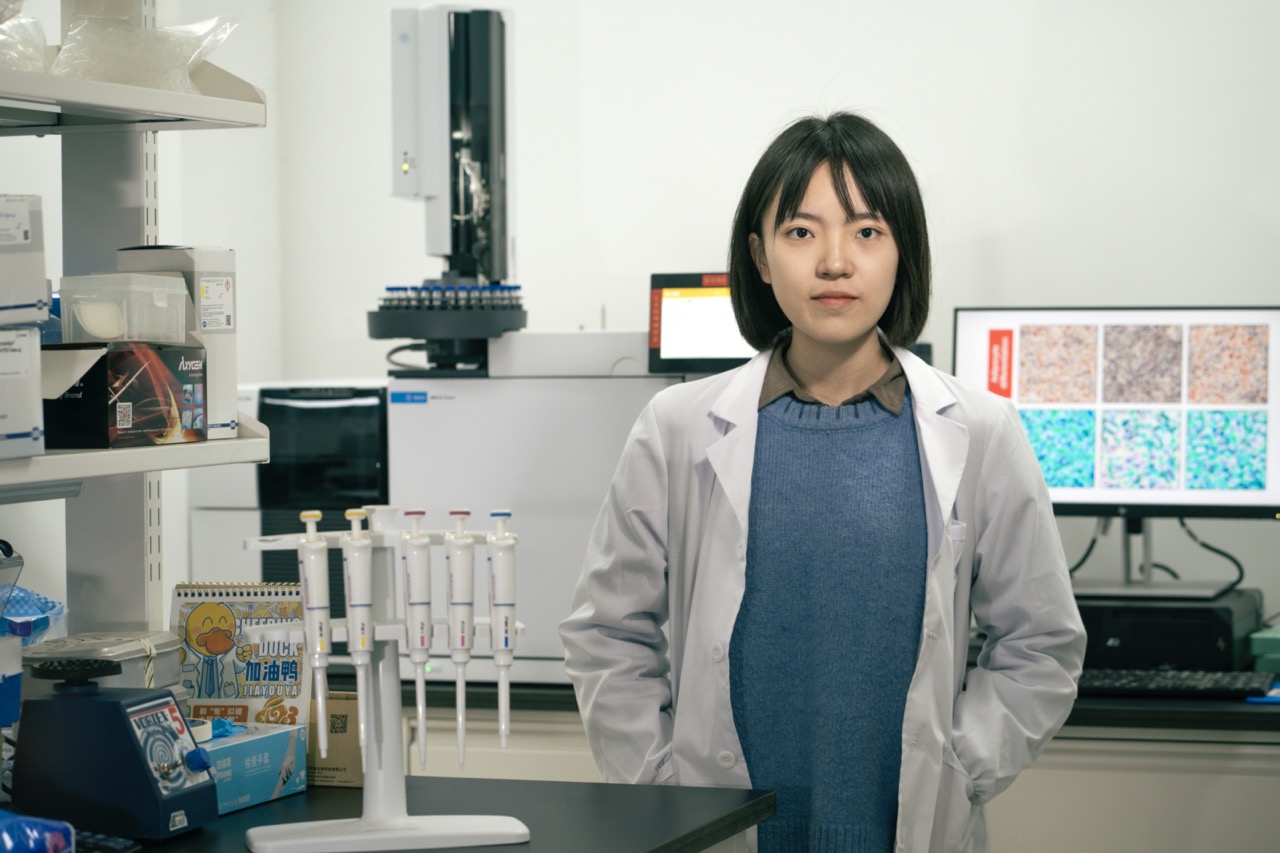
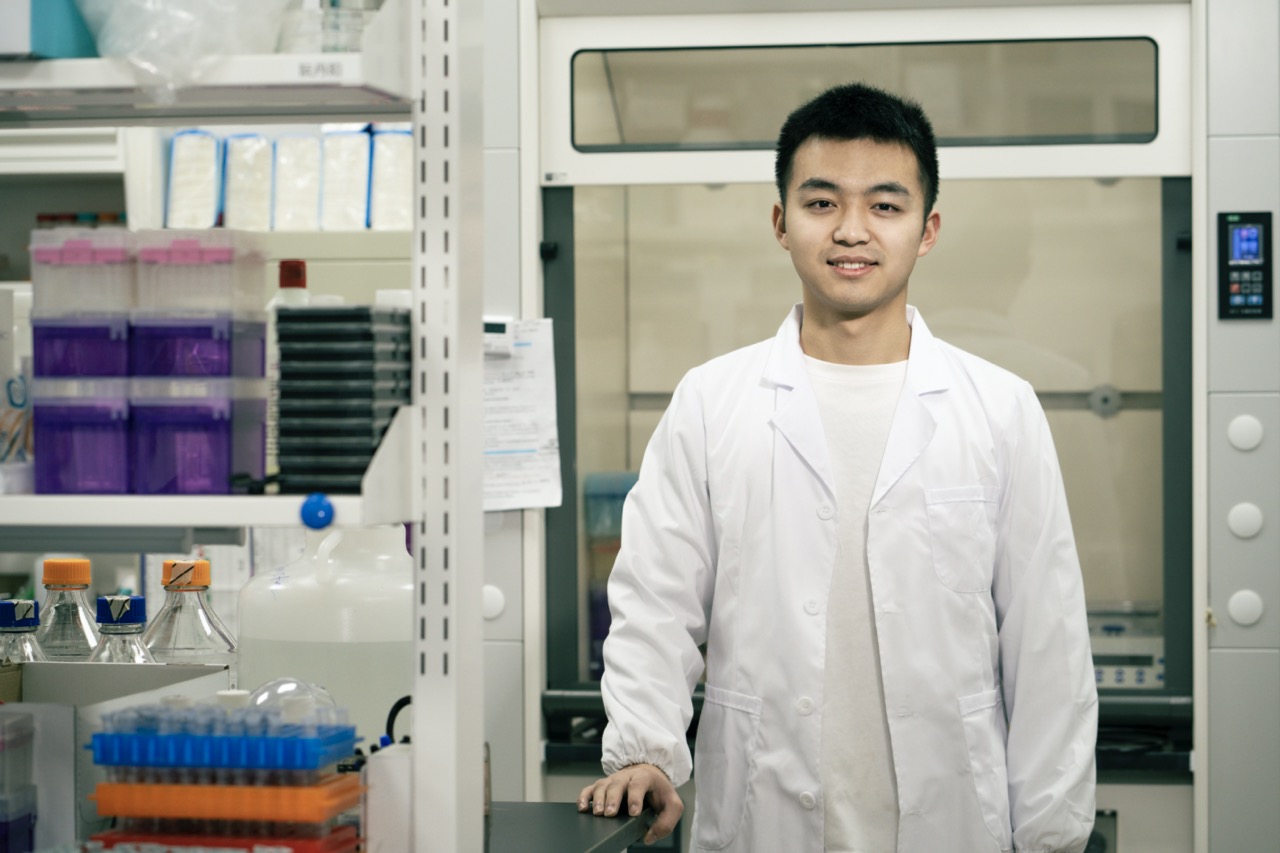
Shuai Liu
Doctoral Candidate
Since 2021.9 Tsinghua University Major in Basic Medical Sciences, School of Medicine
2017.9-2021.6 Shanghai Jiao Tong University Major in Life Science, Zhiyuan Honor Program
Research interest:
Iron sulfur clusters (ISC) are among the most antient protein cofactors functioning in diverse biological processes such as energy metabolism, genome maintenance and iron regulation. The working model of how ISC is synthesized and incorporated into apo-proteins in form halo-proteins are still underexplored. How ISC biosynthesis is regulated by upstream input is still poorly understood. Shuai is interested in finding new components and regulators in the ISC and CIA (Cytosolic Iron-sulfur Assembly) machineries and understanding their woring mechanism.
Jiankun Ren
Doctoral Candidate
2021- present, Ph.D. student, Tsinghua University, School of Medicine
2017-2021, B.S., Nanjing University, School of Life Science
Research Interest:
1. Compartmentalized metabolic regulation of NADP(H). Jiankun is interested in discovering novel regulators of NAD(P)H homeostasis in cytosol, nucleus, and mitochondria.
2. Intracellular and extracellular concentrations of amino acids are sensed by a variety of pathways that are integrated and coordinated at both the cellular and organismal levels. Jiankun found that a specific class of stress response proteins can be upregulated under amino acid deficiency in cancer cells. Jiankun aims to investigate the underlying molecular mechanisms, and the functional relevance in cancer.
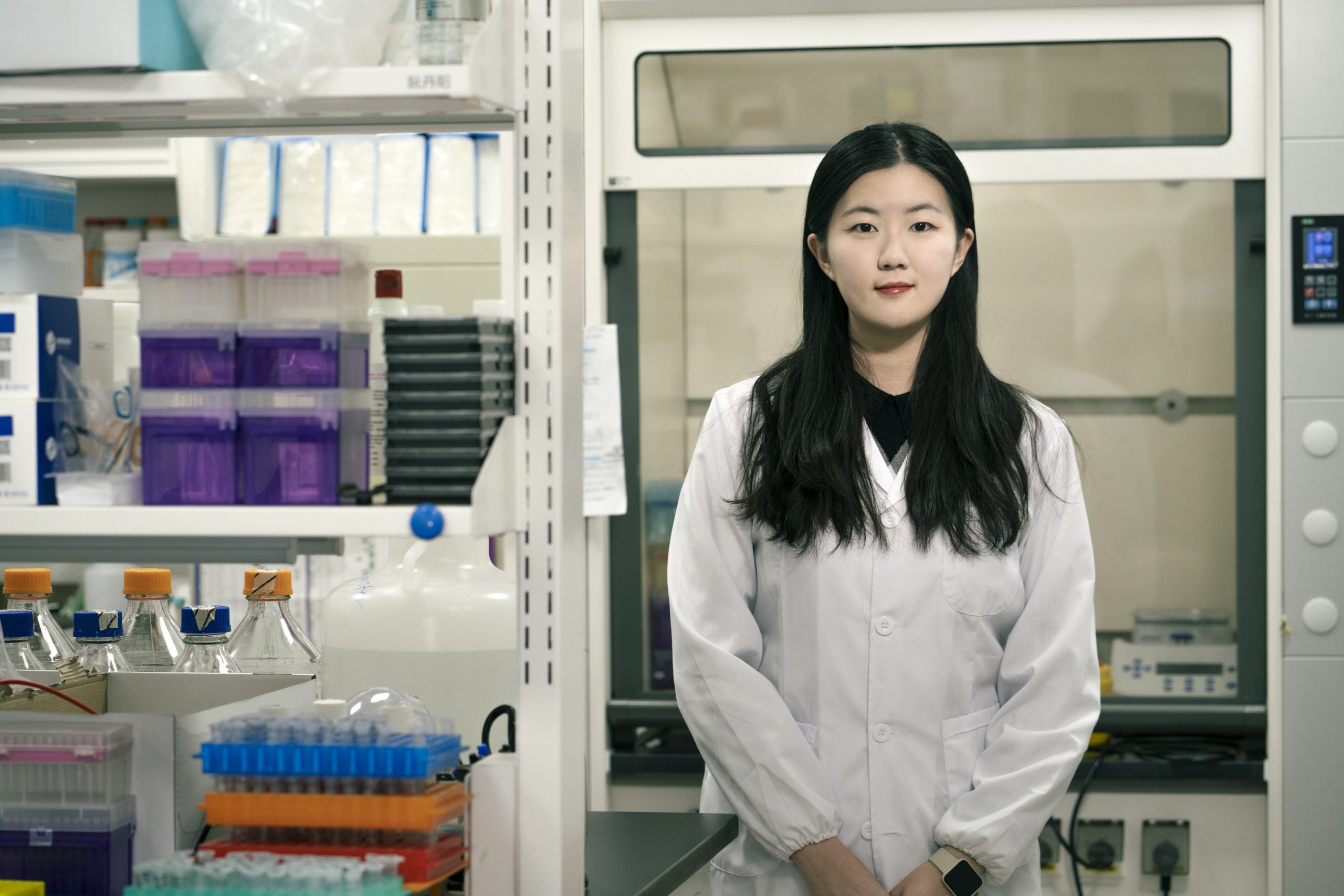
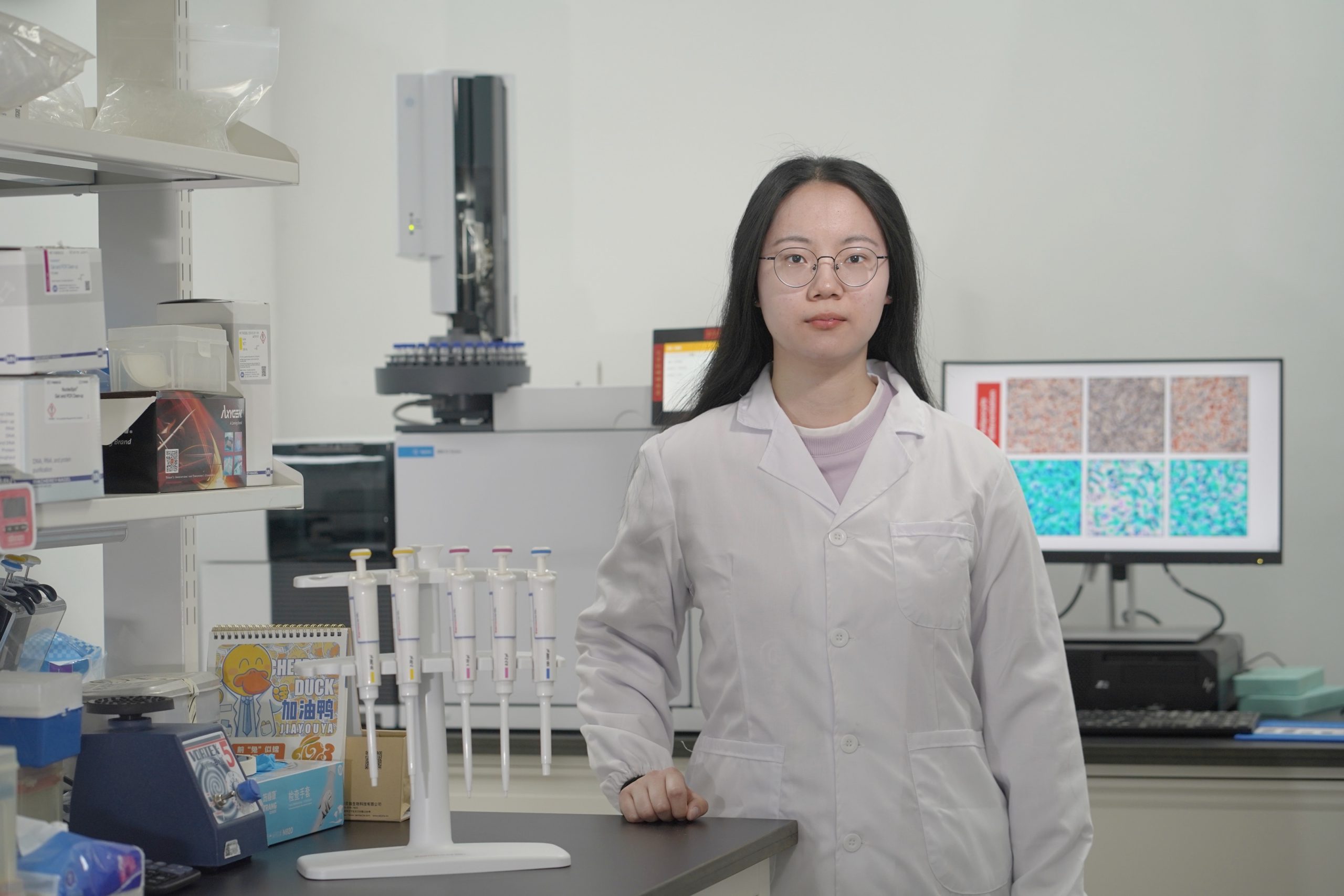
Luna Zhang
Doctoral Candidate
2022-present, Ph.D. student, Tsinghua University, School of medicine
2018-2022, B.S., Huazhong Agricultural University, School of Life Science
Research interest:
Recurrent mutations in isocitrate dehydrogenase 2 (IDH2) have been identified in glioma, acute myeloid leukaemia and chondrosarcoma. Mutant IDH2 acquired a novel enzymatic property to produce 2-hydroxyglutarate (2-HG) from a-ketoglutarate (aKG) in the mitochondria. Luna’s research aims to understand the mechanism by which 2-HG contributes to tumorigenesis.
Zefang Bimo Zhao
Doctoral Candidate
2022.09 till now, School of Medicine, Tsinghua University, major in Basic Medicine, Ph.D. student.
2018.09 - 2022.06 College of Life Science, Wuhan University, major in Bioscience, B.S.
Research Interest:
1. Redox regulation is an essential part of the cellular metabolic network. NADPH, a common reducing equivalent, is synthesized from NAD(H) through the activity of NADK in cytosol and NADK2 in mitochondria. Zefang is interested in exploring compartmentalized regulation of NADPH production in human cells.
2. xCT is a Na+-independent cystine and glutamate antiporter mainly located in plasma membrane. Zefang is interested in studying how xCT activity is regulated in human cells. Zefang also takes advantage of metabolomics to reveal metabolic changes during cell state transitions.
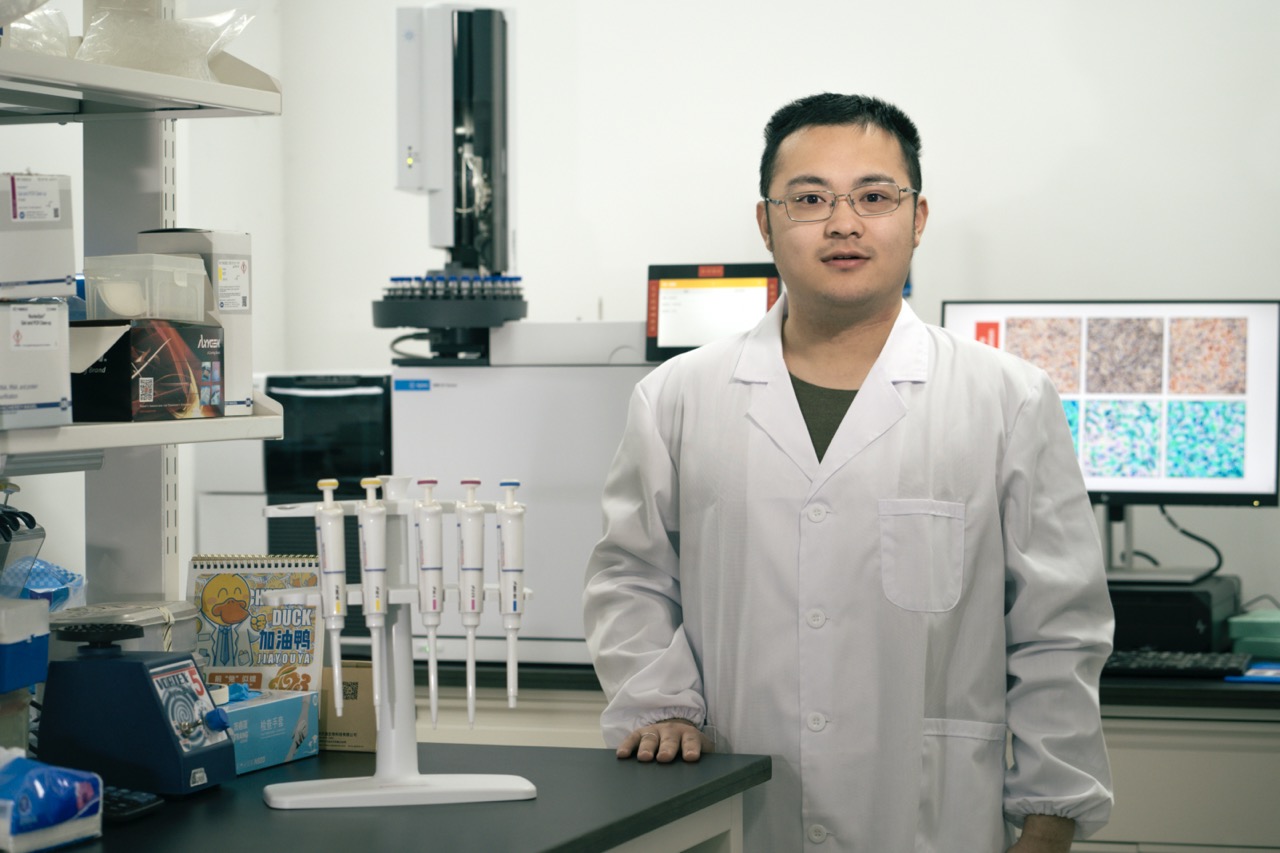
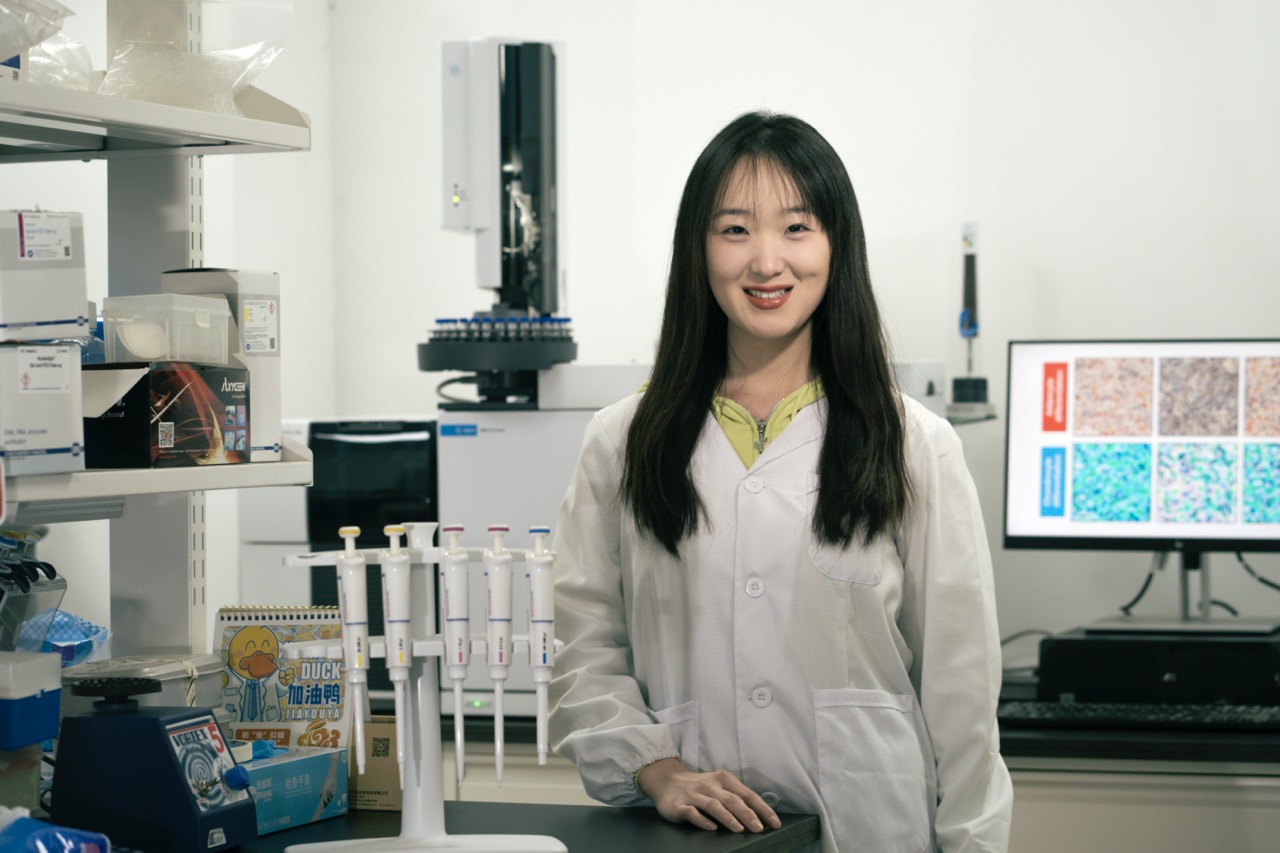
Zhuoran Zhen
Doctoral Candidate
2020.9- Ph.D. candidate, School of Medicine, Tsinghua University.
2016.9-2020.6 B.S, College of Life Sciences, Zhejiang University.
Research interest:
Highly proliferative cancer cells require NADPH to protect against oxidative stress and to support the synthesis of reduced biomass. Owing to the impermeability of NADP(H) molecules across membrane structures, cellular NADP(H) pools are compartmentalized. Previous studies found that mitochondrial NADP(H) generation is essential for proline biosynthesis. However, the role of the mitochondrial NADP(H) pool in tumorigenesis remains to be elucidated. Zhuoran’s research aims to investigate the in vitro and in vivo significance of mitochondrial NADP(H) generation during cancer progression, with the ultimate goal to develop novel therapeutic strategies.
Dingyue Zhang
Doctoral Candidate
2021- present, Ph.D. student, School of Medicine, Tsinghua University
2019-2024, M.B., West China School of Basic Medical Sciences & Forensic Medicine, Sichuan University
Research interest:
Nutrients like amino acids and sugars are essential for many biological processes and cell proliferation. However, nutrients insufficiency is quite normal in highly proliferating cells for massive energy and biomolecule production. Cells can sense and respond to nutrients starvation through signaling pathways such as mTOR and AMPK. Dingyue is interested in how cells respond to short-term nutrients starvation at transcription level.

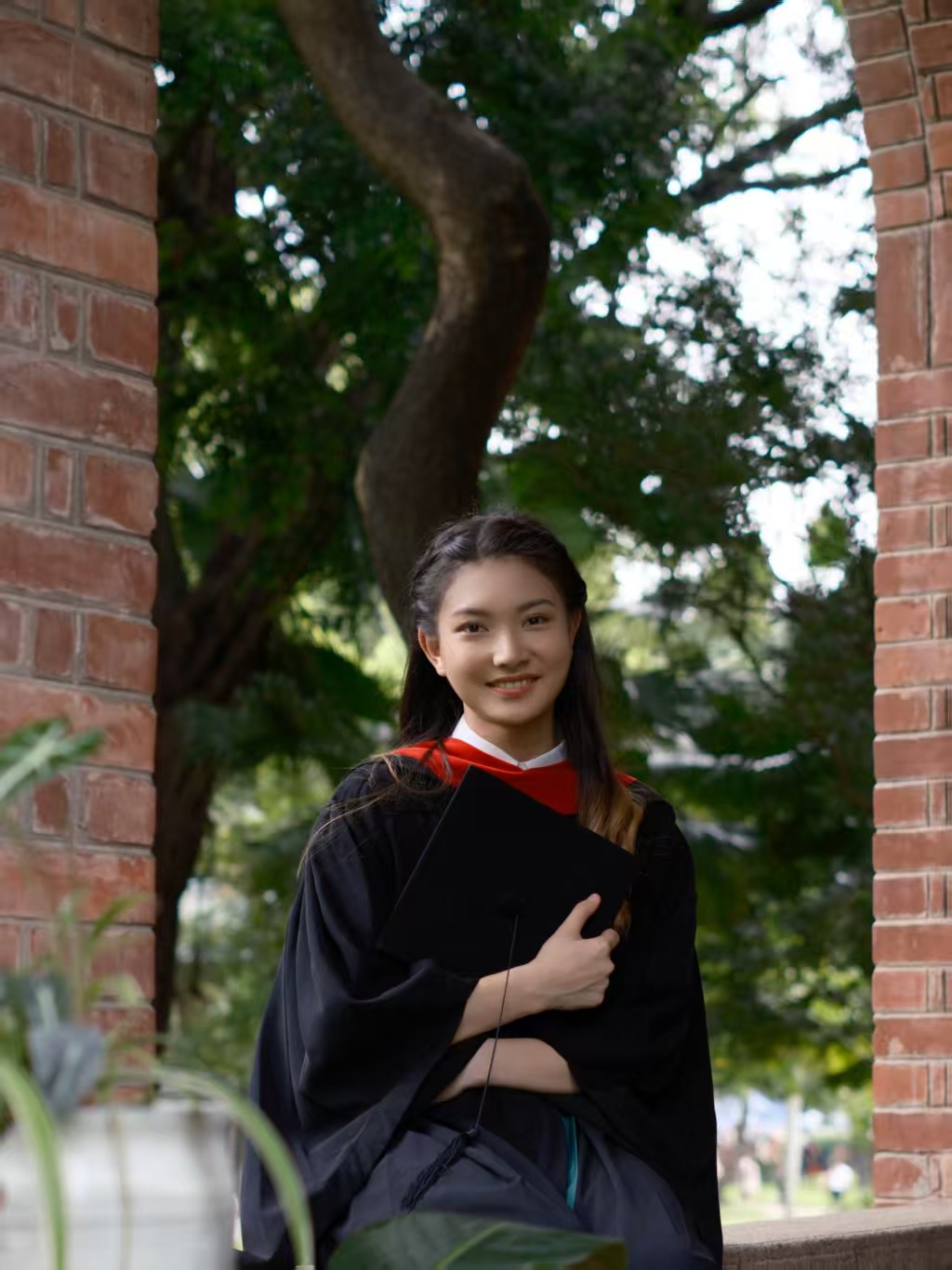
Yaxuan Wu
Doctoral Candidate
2020.9-2024.6, the School of Life Sciences, Sun Yat-Sen University, Bachelor's Degree
Research interest:
Vitamins, as crucial cofactors for maintaining cellular homeostasis, orchestrate a metabolism network that not only drives the synthesis of macromolecules but also sustains the redox balance and modulates key enzymatic activities. Although vitamins do not directly contribute to energy production, their deficiency can trigger cellular stress responses that disrupt intracellular equilibrium. My research interest primarily focuses on the dynamic interplay between vitamin homeostasis and the autophagy-metabolism coupling network, with an emphasis on how mitochondria sense and respond to vitamin signals to regulate cell survival and functionality.
Undergraduate Students
Yi Dong
Undergraduate Intern
After graduating from Northeast Forestry University in June 2023, he will join the School of Medicine, Tsinghua University in September 2023.
Research Interest:
As an important compound, ubiquinone (Co-enzyme Q, CoQ) is involved in many biological processes including bioenergetics, nucleotide biosynthesis, antioxidant defense. Yi is interested in understanding the regulatory mechanism of CoQ biosynthesis.
